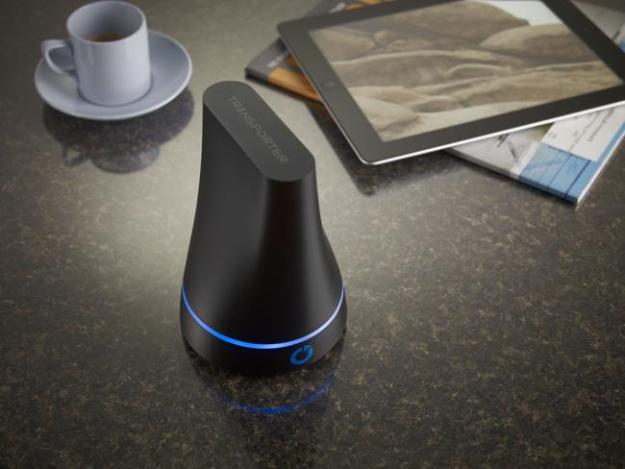
Storing the odd Word document or cat photo on a cloud-based service like Dropbox or Google Drive is perfectly fine for users who don’t have a lot of sensitive data or large files they need to access on any device. But for users who want to better protect their files (and not be at the whim of hackers potentially compromising a public cloud), or who want to stop paying a monthly fee to rent a significant amount of cloud storage space, the Transporter could be the answer.
After a successful Kickstarter campaign that funded the production of the first-generation Transporters just this January, the Connected Data team behind this innovative product is already onto version 2.0, which brings a complete redesign of the software that better mimics the Dropbox interface and features, as well as new mobile apps for both iOS and Android devices.
Basically, the Transporter is a device that lets you store your files locally but makes them accessible on any device with an Internet connection. You can also create your own peer-to-peer network of Transporters that are spread out throughout the world so that family members who live apart from each other can share photos and other files securely. (Now that Connected Data is in talks to merge with Drobo, the easy-to-scale storage device company that Connected Data CEO Geoff Barrall also founded, we wonder if Barrall will be bringing some of the Transporter’s connectivity and personal cloud features to Drobo hardware as well.)
Underneath its black, fanless case, the Transporter is just a standard 2.5-inch hard drive that is perpetually connected to the Internet through an Ethernet cable (no built-in Wi-Fi connectivity). It comes with either 1TB ($300) or 2TB ($400) of internal storage, or is available as just the case ($200) so you can plug in your own hard drive to keep the device flexible and up to date.
As Jim Sherhart, vice president of marketing, reassured us last week, the hardware of the second-gen Transporter is identical to the earlier model. Since all the improvements to the Transporter v2.0 are on the software side, early adopters can keep using the same device but will need to download the new interface and spend some time configuring the new features. For example, “connect folders” no longer exist so users might have to move files into other folders to share with specific users instead.
Dropbox users who give the Transporter a try will find the new interface and features for the device to be much more intuitive. Not only will they be able to drag and drop files onto the Transporter, and right-click on files and folders to manage them, they’ll also be able to email links to share specific files with others – a feature users from other cloud services will appreciate. The sync feature is also more sophisticated this time around. You can control things down to the specific folder that you want to sync (or not). This is particularly useful if you like to store your movie collection in the cloud so that you can access it when you travel, but don’t necessarily want to download every movie every time you connect to your device – especially when all you need is to grab a single file from the Transporter.
To go along with Transporter v2.0’s new software features, the company is also releasing a new iOS and Android app today. While the new iOS app is an update to the one launched in March, the Android app is completely new and was one of the most requested “feature” from users and Kickstarter backers, according to Sherhart. Both apps are available for free from their respective app stores.
The first-gen Transporter is already available from online retailers. If you can wait a couple of weeks, the Transporter v2.0 will hit stores in the second week of June.


